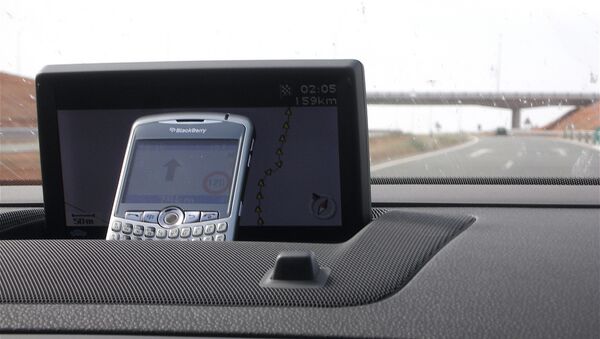A Kremlin spokesman on Monday denied knowledge of Russia’s alleged role in the glitches experienced by the US global positioning system, GPS, during this month’s NATO military exercises.
"We have no knowledge of Russia’s alleged role in GPS glitches. You should ask experts or the Defense Ministry. But there is an obvious trend to blame Russia for everything. As a rule, these accusations are baseless," Dmitry Peskov told reporters.
Commenting on the issue, Finnish Foreign Ministry spokesman Vesa Hakkinen told Sputnik that Finland would investigate the information about the alleged GPS glitches.
"The minister said that we will now investigate the source of the suspected large-scale GPS malfunctions in northern Finland. The report will be submitted to the Foreign Affairs Committee as soon as possible,” Hakkinen said.
The comments referred to the earlier reports made by pilots in Finland and Norway, who claimed they had lost GPS navigation signals during the recent NATO drills Trident Juncture near Russia's north-western border, the largest on Norwegian soil in decades.
Although an investigation is yet to be carried out, Finnish Prime Minister Juha Sipila (57) ventured that Moscow was likely to blame.
"Technology-wise, it's relatively easy to disturb a radio signal, and it's possible that Russia was behind it," Sipila told national broadcaster Yle. "We will investigate, and then we will respond," he added. "This is not a joke, it threatened the air security of ordinary people."
The goal of the alleged Russian interference was "to demonstrate the capabilities for such actions," he said.
Sipila, himself an experienced amateur pilot, stressed that the incident, which makes Finland vulnerable to hybrid warfare, would be treated as a breach of Finnish airspace.
READ MORE: Norway, Finland Report GPS Signal Loss, Media Claim Russians May Have Done it
The disturbance targeted the Finnish region of Lapland and parts of Norway near the border with Russia, also affecting air traffic in Norway. The regional Wideroe airline confirmed that its pilots had experienced GPS disruptions.
By contrast, the Norwegian airline was more reserved in its comments. While confirming that planes lost GPS signals, Wideroe information consultant Lina Lindegaard stressed that no security risk was involved and specifically chose not to speculate on the reasons, The Barents Observer news outlet reported.
In Finland, though, the alleged GPS jamming will be debated in parliament. Former Prime Minister and current head of the Foreign Affairs Committee Matti Vanhanen pledged an investigation into suspicions that Russia was behind the GPS jamming, which he compared with airspace violations, and promised to get to the bottom of these matters.
Foreign Minister Timo Soini promised a report to the Finnish parliament about the alleged Russian jamming of GPS signals.
The head of the parliamentary Defence Committee, Ilkka Kanerva, said that the reports of GPS jamming posed a significant risk to aviation.
"We are in dangerous territory when we find ourselves at the border of military and civilian activity. It can mean that aviators can find themselves in completely unanticipated and even catastrophic situations," Kanerva said, as quoted by national broadcaster Yle.
As of yet, Moscow hasn't commented on the speculations of its involvement.
READ MORE: 'Best' of NATO Mega Drills: From Pooing in Public to Pub Crawling and Beyond
The GPS jamming scandal unravelled just days after NATO forces ended their two-week Trident Juncture drill, the largest in Scandinavia in decades. Operations took place in Norway, parts of formally non-aligned Finland and Sweden, the North Atlantic and the Baltic Sea, involving some 50,000 personnel.
The Russian Foreign Ministry decried the drill as "obviously anti-Russian" and "leading to deterioration of military and political situation in the region." The Foreign Ministry also stressed that its offensive character was "obvious" despite "clumsy attempts" to portray the military activities as "defensive."
The Trident Juncture drills were met with anti-war protests across Norway.


